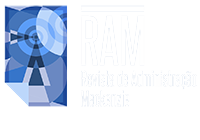DECLARATION OF ETHICS AND MISCONDUCT
Activities by reviewers are seen as part of an ongoing collective process for constructing knowledge that must underpin content enhancement and the manner in which research projects are conducted. In order for this intention to materialize in the publication of papers whose excellence is acknowledged at domestic and international levels, reviewers engaged by this Journal must follow the guidelines listed below, grounded on the document entitled Good Scientific Publication Practices issued by the National Association for Graduate Studies and Research in Administration (ANPAD):
- Reviewers should not agree to examine a manuscript if they feel they are not professionally qualified in the respective topic.
- Reviewers must advise the Editor if an author’s identity is known to them.
- Reviewers must specifically agree to comply with timeframes or discuss any alterations thereto for the review process of a paper proposed by the editor, returning it by the agreed on date.
- Reviewers must study the editorial policy and reviewer instructions carefully, following them.
- Reviewers must initially complete an in-depth reading at a single session and may also mark or note down important points during this initial reading. However, they must be attentive to the paper as a whole. Subsequently, they must return to the review process, conduct a detailed analysis and draw up an expert opinion.
- Reviewers must consider the existence of several paradigms, striving to ensure that their reviews are neutral. Papers must be analyzed in terms of their relevance and internal and external consistency, rather than on the basis of theoretical or methodological preferences.
- Reviewers must list any problems that can be corrected, stating what should be done to rectify them while also assessing the cost-benefit of the requested alterations in terms of enhancing the quality of the paper.
- Reviewers must consider the references used, ensuring that they cover related international and domestic literature on the topic addressed by the paper, whether through the inclusion of classics or literature updated during the past five years. When timely, they must suggest relevant references to the authors for rewriting the paper.
- Whenever possible, reviewers must indicate all alterations required and avoid further requests being issued for each re-submission, when this could have been mentioned earlier.
- When receiving a new version of a paper, reviewers must ensure that requests for alterations issued previously have been complied with or were otherwise justified.
- Reviewer opinions must present well-grounded and objective arguments that clearly justify the favorable or unfavorable stance adopted for the paper under analysis. Extremely concise opinions should not be used, providing only brief explanations of how a final decision was reached on a paper’s acceptance or rejection.
- The fields on the review sheet requesting analysis of positive and negative aspects related to the theoretical grounds, methodology and structure of the paper are mandatory and must be completed carefully.
- A constructive approached focused on enhancement must permeate the review process. This means that a paper may be resubmitted for successive reviews as required, until reaching the necessary level of maturity.
- Compliance by the paper with the editorial line adopted by this Journal, the Guidelines for Authors, and a smooth flow and internal coherence of the body text must be ascertained, as well as the use of appropriate language.

